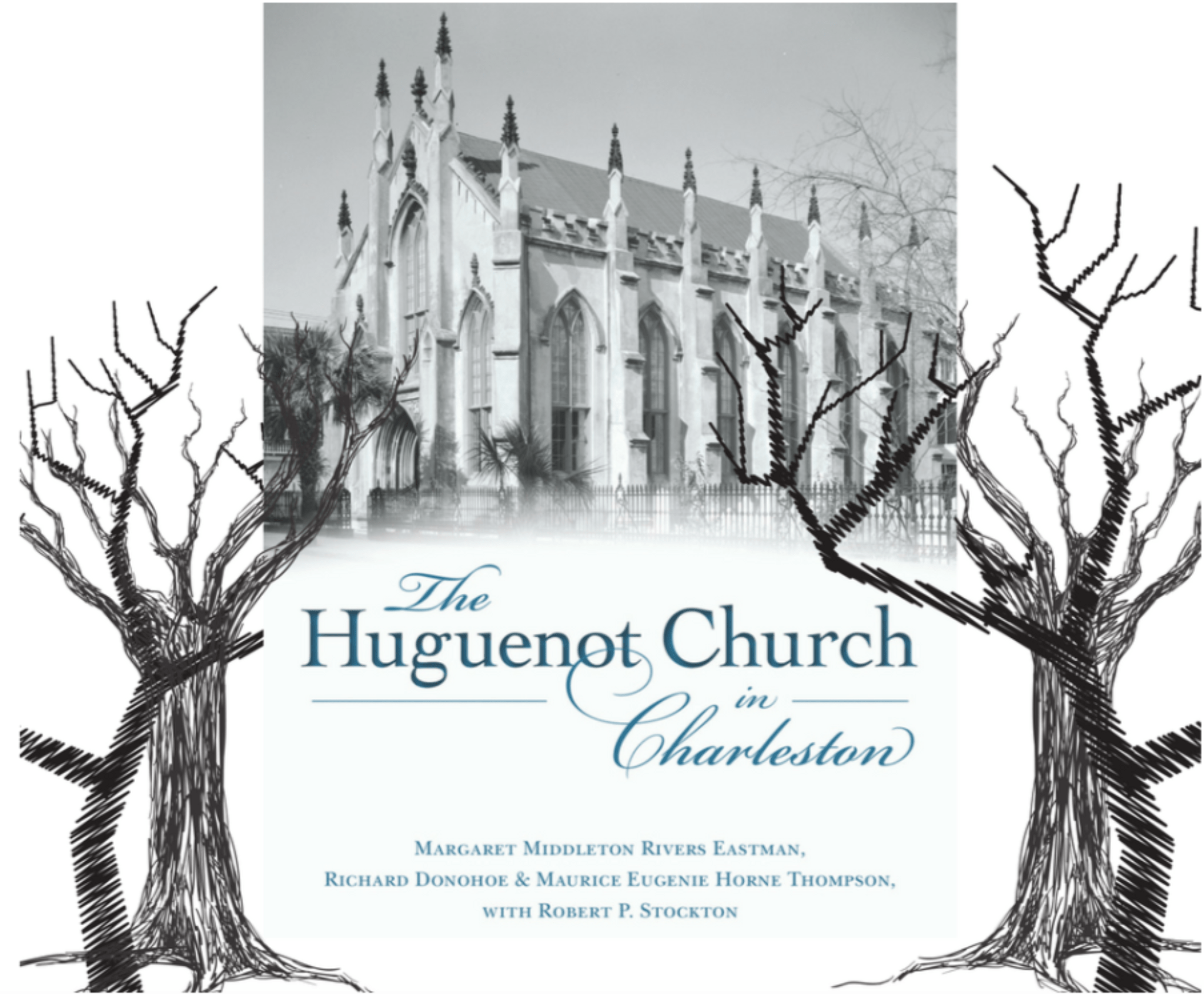

Join the authors of the new title The Huguenot Church in Charleston as they discuss the church’s history including the immigrants who helped create the congregation. To RSVP, call 843-723-9912 or email dreutter@charlestonlibrarysociety.org
The Huguenot heritage in the United States cannot be overstated. In the latter part of the sixteenth century, France was plunged into a series of religious wars. In 1589, Henry of Navarre became Henry IV of France, but peace was not achieved until he issued the Edict of Nantes in 1598, which recognized the Huguenots’ right to worship in the towns they controlled. While Henry IV lived, the financial and military security of the country was ensured. After his assassination in 1610, it ceased. Religious persecution resumed, and in 1685, Louis XIV revoked the Edict of Nantes, and many French Protestants fled. Of the estimated 180,000 Huguenot refugees, approximately 3,000 crossed the Atlantic. This book is about their descendants and their influence on the development of the American republic and the rights enshrined in the U.S. Constitution. The Huguenot Church in Charleston, a national landmark, is the last Huguenot church in America.
Margaret (Peg) Middleton Rivers Eastman is a Huguenot descendant. Her books have been published by McGraw Hill and The History Press. She writes for the Charleston Mercury and the South Carolina Historical Society magazine. She has lectured on various topics related to Charleston’s rich history and serves on the City of Charleston History Commission.
Richard Powell Donohoe practiced architecture in New York and Connecticut before retiring, first to Maine and then to Charleston. His Calvinist roots go back to Puritans of early New England. He is an associate member of the Huguenot Church, where he serves as an elder. Volunteer activities include leadership roles in conservation organizations in New England.
Maurice (Molly) Eugenie Horne Thompson, a Huguenot descendant, is active in the Preservation Society and the Historic Charleston Foundation and serves on the board of the development council for the School of Health, Education and Human Performance at the College of Charleston. She is a board member for the Catesby Commemorative Trust and Capers Preparatory Christian Academy as well.
Robert P. Stockton, author of The Great Shock, has written articles for magazines and the web and the News and Courier column entitled “Do You Know Your Charleston.” He teaches the history of Charleston architecture and other related topics at the College of Charleston and has served on the Charleston Board of Architectural Review.